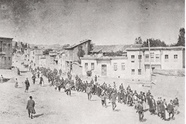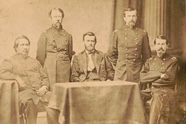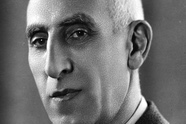Roundup Top 10!

A Belated Recognition of Genocide by the Houseby Samantha PowerFor too long, Turkey bullied America into silence. Not anymore. |

Impeachment Wasn’t Always This Fairby Buckner F. Melton, Jr.For more than half of the country’s history, potential impeachment defendants had wildly different rights from the ones they have today. |

The ‘Deep State’ Exists to Battle People Like Trumpby Margaret O’MaraA merit-based system for hiring federal employees was created in reaction to the rampant corruption of the Gilded Age. |

What we get wrong about Ben Franklin’s ‘a republic, if you can keep it’by Zara AnishanslinErasing the women of the founding era makes it harder to see women as leaders today. |

A Racist Attack Shows How Whiteness Evolvesby Nell Irvin PainterAn assault at a New Jersey high school football game had an unexpected cast of characters. |

The United States Overthrew Iran’s Last Democratic Leaderby Roham Alvandi and Mark J. GasiorowskiDespite a campaign of historical revisionism in Washington, the archival record makes clear that the U.S. government was the key actor in the 1953 coup that ousted Mohammad Mosaddeq—not the Iranian clergy. |

What Tenured Faculty Could Do, if They Cared About Adjunctsby Herb ChildressHere are 11 things they can do right now that would make a difference. |

What the Dismantling of the Berlin Wall Means 30 Years Laterby James CarrollAs the 30th anniversary of the end of the Cold War approaches, it should be obvious that there’s been a refusal in the United States to reckon with a decades-long set of conflagrations in the Greater Middle East as the inevitable consequence of that first American invasion in 1990. |

Recalling Purple Hands protests of 1969 on Halloweenby Marc SteinHalloween has long been one of the queerest of holidays, but on October 31, 1969, San Francisco LGBT activists found new ways to confront their terrifying fears of media misrepresentations and police violence. |

Career Diversity and the Crisis of Grad Student Mental Healthby Erin Leigh Inama, Sarah Stoller, and James VernonThe myth of the academy as a meritocracy that rewards the smartest and most talented often generates anxiety and depression. |